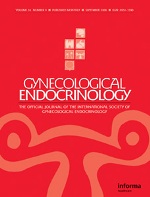Authors:
V. Unfer, G. Carlomagno, G. Dante, F. Facchinetti
Polycystic ovary syndrome (PCOS) affects 5%-10% of women in reproductive age, and it is the most common cause of infertility due to ovarian dysfunction and menstrual irregularity. Several studies have reported that insulin resistance is common in PCOS women, regardless of the body mass index. The importance of insulin resistance in PCOS is also suggested by the fact that insulin-sensitizing compounds have been proposed as putative treatments to solve the hyperinsulinemia-induced dysfunction of ovarian response to endogenous gonadotropins. Rescuing the ovarian response to endogenous gonadotropins reduces hyperandrogenemia and re-establishes menstrual cyclicity and ovulation, increasing the chance of a spontaneous pregnancy. Among the insulin-sensitizing compounds, there is myo-inosiol (MYO). Previous studies have demonstrated that MYO is capable of restoring spontaneous ovarian activity, and consequently fertility, in most patients with PCOS. With the present review, we aim to provide an overview on the clinical outcomes of the MYO use as a treatment to improve ovarian function and metabolic and hormonal parameters in women with PCOS.

